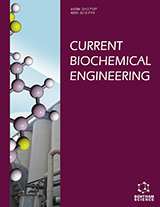Abstract
PH plays an important role in determining product quality in industries like
various chemical, petrochemical, petroleum refineries, fertilizer, pharmaceutical, food
industries, effluent treatment, and in many other organic and inorganic plants. For
instance, in any industrial wastewater treatment plant, PH is monitored and controlled
by manipulating the acid or base stream which is a strong acid or strong base. Modern
treatment plant involves physical and chemical precipitation/flocculation along with
biological treatment in aerators/trickle filters, membranes, etc, where the control of PH
is the key factor for efficient treatment. In chemistry, PH is ameasure of the acidity or
basicity of an aqueous solution. Pure water is said to be neutral, with a PH close to 7.0
at 25 degree Celsius. Solutions with a PH less than 7 are said to be acidic and solutions
with a PH greater than 7 are basic or alkaline. PHmeasurements are important in
medicine, biology, chemistry, agriculture, forestry, etc. By PH control we mean to
maintain the PH value during continuous operation at a specific desired value through
manipulating the alkaline flow rate. Usually in most industrial applications, the desired
value is chosen to be around 7. This is the safest value for portable water, utility water
used in industry, or waste disposing water.






















